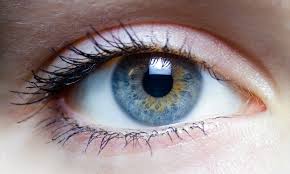Wave Life Sciences to develop programs in rare, genetic eye diseases
October 10, 2018 | Wednesday | News
Research will focus on inherited retinal diseases associated with RHO, USH2A, ABCA4 and CEP290
Representative Image
Wave Life Sciences, a biotechnology company focused on delivering transformational therapies for patients with serious, genetically-defined diseases has announced plans to design and advance stereopure oligonucleotide therapeutics for the potential treatment of rare, inherited eye diseases. Wave's research in ophthalmology will initially focus on the following four inherited retinal diseases which commonly lead to progressive vision loss typically starting in childhood or adolescence: retinitis pigmentosa due to a P23H mutation in the RHO gene, Stargardt disease, Usher syndrome type 2A and Leber congenital amaurosis 10. The company expects to announce its first ophthalmology development candidate in the second half of 2019.
"We have long believed that oligonucleotides have the potential to be particularly effective and durable in the eye and are energized by our latest research that provides additional validation of our precisely designed stereopure oligonucleotides," said Paul Bolno, MD, MBA, President and Chief Executive Officer of Wave Life Sciences. "Our aim is to move quickly to develop long-acting, intravitreally injected, disease-modifying therapies to address the enormous need across a spectrum of rare, genetically-defined eye diseases."
Wave's decision to expand its therapeutic pipeline into ophthalmology is supported by its data presented at the 14th Annual Meeting of the Oligonucleotide Therapeutics Society on October 1, 2018 in Seattle, Washington. The data demonstrate that a single intravitreal injection of stereopure oligonucleotide in the eye of non-human primates resulted in greater than 95% knockdown of a target RNA in the retina for at least four months. Based on these data, the company is working to design development candidates that could achieve a therapeutic effect with only two doses per year.
Inherited retinal dystrophies are a wide range of heterogeneous, rare eye disorders characterized by progressive loss of vision and/or eventual blindness caused by inherited genetic mutations. These conditions affect approximately 200,000 people in the U.S. There are currently no cures or treatments for this category of diseases, except for one approved disease-modifying therapeutic in the U.S. for patients with biallelic RPE65 mutation-associated retinal dystrophy.
Wave's research will assess four genetic targets, RHO P23H, USH2A, ABCA4 and CEP290 to address four rare, inherited retinal diseases. The company estimates that approximately 10,000 U.S. patients could potentially be treated by Wave's approach to addressing the four diseases which are Retinitis pigmentosa, Usher syndrome type 2A, Stargardt disease and Leber congenial amaurosis 10.









